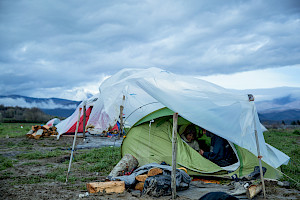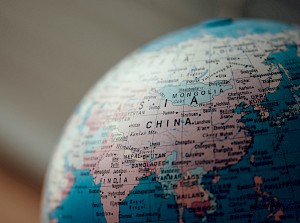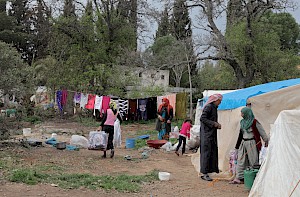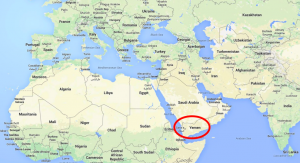Climate, Conflict and Crisis
May 11, 2020How climate change has fueled conflict between farmers and herders in Africa.
By now, most of us are keenly aware that climate change presents an existential threat to some forms of life on the planet, including us. But public outrage in North America has yet to match the level of danger climate change poses, and this may be due to the fact that our “self-extermination” is not imminent today, tomorrow or next month.
While most projections show some of the worst effects of climate change on the western world won’t kick off in earnest for decades, we’re already seeing impacts in parts of Africa and the Middle East when it comes to food production, access to water and armed conflict.
One of the most serious climate change related problems is an increase in migration as some parts of the world become less habitable. We have been witness to the steady human flow of climate refugees trying to make it across the Mediterranean Sea to Europe. In Africa, we’ve seen these issues contribute to deadly conflict.
I am co-chair of the International Crisis Group (ICG), an organization committed to preventing and ending deadly conflicts. Recently, our CEO, Robert Malley, addressed the United Nations Security Council on how climate change shapes conflicts. Without global action, he said climate change could become a slow moving version of the current COVID-19 pandemic. It is already shaping and will continue to shape the future of conflict, and we ignore that relationship at our peril.
Currently, among the hottest places on Earth is the Sahara Desert in Africa. Across the Sahel region and even as far south as Kenya, ICG has analyzed how climate-related factors have exacerbated intercommunal conflicts between herders and farmers. In northern Nigeria, there have been large declines in the length of the rainy season and an increase in desert or semi-desert conditions over recent decades. These changes have dried up many natural water sources, diminishing pastures and farmland. In the northern states most directly impacted, these conditions have worsened long-running fights between herders and farmers sharing the same resources. This has also pushed large numbers of herders to migrate south in search of productive land, resulting in more conflicts between them and central Nigeria’s sedentary crop farmers. This violence has stretched Nigeria’s military, and diverted its attention away from the Islamist insurgency group, Boko Haram.
Climate change and its connection to conflict is a complex subject and one in which it’s hard to draw straight lines of cause and effect. But that’s why the work ICG does through its unique on-the-ground analysis is so vital in helping policy makers shape strategies to combat this issue.
Ultimately, the only solution to all the adverse effects of climate change is to reduce greenhouse gas emissions. But in the short term, we need to address the very real existing damage it is causing to food security, water access and deadly conflict in the hardest hit areas.
Originally posted on Modernfarmer.com










